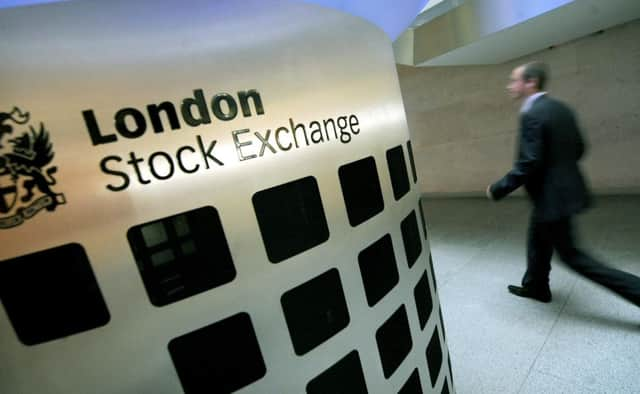‘Great fall of China’ leads to market panic


A nine per cent dive in Chinese shares, and a sharp drop in the dollar and major commodities, raised fears of a China-led economic slowdown.
Traders said investors were effectively being forced to sell to raise cash after widespread losses across markets and that the chain reaction had yet to reach its end.
Advertisement
Hide AdAdvertisement
Hide Ad“There is a snowball effect happening, with margin calls putting pressure on positions and creating forced sellers,” said Mark Ward, head of execution trading at Sanlam Securities.
“Every order has been a sell today, across the board, so clearly people think we haven’t hit the bottom yet.”
However, other traders countered that stock markets were in “oversold” territory and that investors should bet on a rally.
The blue-chip FTSE 100 closed down 4.7 percent to 5,898.87 pts, its lowest level since late 2012.
Advertisement
Hide AdAdvertisement
Hide AdDavid Battersby, an investment manager at Leeds-based Redmayne-Bentley, said: “Falling equity markets have been caused by concerns about China - as seen by the knock-on effect to commodities - and suggestions that the Federal Reserve will raise interest rates imminently.
“This correction reminds investors how reliant on stimulus the markets have become. and may push down the line the eventual hike.”
Mr Battersby said that a falling oil price, while good for the economy, is bad for equities in the short term, because there is so much weighting in the market.
He added: “Raising US rates may threaten the Fed’s objectives of price stability, full employment and financial stability,,if the currencies of China and other emerging markets further depreciate, downward pressure on US inflation rates will increase.”
Advertisement
Hide AdAdvertisement
Hide AdRob Donaldson, the head of M&A (mergers and acquisitions) and private equity at Baker Tilly Corporate Finance said: “The significant corrections to the Chinese stock market that we have seen in recent days and weeks should not come as a big surprise to market watchers.
“Over the last few years, tens of millions of individual investors in China - who vastly outweigh institutional investors - have been encouraged by the state apparatus to plough their money into shares.
“This has pushed prices up far beyond their fundamental value and what we are now seeing is a painful, but perhaps necessary, return of common sense.
“What is perhaps more surprising is the degree of knock-on effects to share prices on the FTSE and across European markets, but we should perhaps be wary of undue panic.
Advertisement
Hide AdAdvertisement
Hide Ad“Fundamentally, the Chinese economy was always going to slow as the middle kingdom neared middle income status.
“That has, time and again, been the experience of the so called tiger economies that came before it.
“In terms of impact, it seems likely that the Chinese economy will be scarred by the experience and the slowdown in that economy will continue and that will impact economies elsewhere.
“Businesses and economies focused on supporting the Chinese mega cycle will suffer. However, another view is that it was time for the rest of the world to take up the slack. China did its bit to boost world demand in the Great Recession of 2008 onwards.”
The FTSE 100, which marked its biggest weekly loss of the year on Friday, has now fallen for 10 sessions in a row, its longest continuous decline since 2003.
Market report - page two
‘